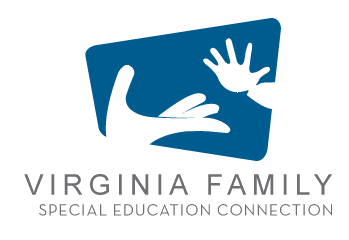Instruction & Monitoring
Once a student has an IEP, instruction can begin. This page provides information and resources to help you monitor your child's instruction and progress to ensure that the instructional plans outlined in the IEP are followed.
Skip to search results
Showing Results 1 - 11 of 11
Description: Decision Tree: How to Assist and Support Students through Interventions - When a parent, teacher, another person, or a school-based team thinks a student has a health condition, learning difficulty, or other challenges that are affecting the student’s ability to learn, the school should take a proactive approach to determine the type of support and/or services that will help meet the student’s needs. This could be a range of informal and/or formal services provided by one or more of...
Description: Manifestation Determination Reviews (MDRs) Toolkit - PEATC has developed another Toolkit to help parents navigate complex special education processes. An MDR is a process used when a student with an IEP has violated the Student Code of Conduct at their school and a change in placement is being considered. The MDR review determines whether the student’s behavior is a manifestation of their disability. If it is, then certain protections under IDEA apply for that student. Our toolkit provides...
Description: The Virginia Family’s Guide to Special Education is a revision of the former A Parent’s Guide to Special Education that was originally published in 2010. This new state guide was developed by the Virginia Department of Education (VDOE) to help those involved in special education, whether as families, teachers or school administrators, advocates, or students. Meeting the needs of children with disabilities requires an understanding of rights and responsibilities which include the...
Description: Brain Injury and Concussion Resources includes: RCPS Traumatic Brain Injury/Concussion Response Process - Flow Chart Concussion Symptoms and Accommodations CMT-1 CDC Concussion Signs and Symptoms CMT-2 RCPS Concussion Symptom Monitoring CMT-3 RCPS Concussion Notification to Teachers CMT-4 RCPS Concussion Academic Monitoring CMT-5 - Recommendations for Referral to Student Study Due to Long Term Symptoms CDC Traumatic Brain Injury and Concussions And more....
Description: Early intervention is full of terms that people constantly use in writing and in conversation, and it’s important to know what those terms mean. We are pleased to provide this handy reference to early intervention terminology, and hopes it helps our readers quickly connect with the meaning of pivotal words and phrases in the field.
Description: Module 1 welcomes everyone to Part C of IDEA—the early intervention program for infants and toddlers with disabilities. With these training materials, you can learn about and provide training on: the 8 basic steps in the early intervention process; 7 acronyms used in early intervention and what they mean; and 9 key terms in early intervention and their definitions.
Description: When a child is having trouble in school, it’s important to find out why. The child may have a disability. By law, schools must provide special help to eligible children with disabilities. This help is called special education and related services. There’s a lot to know about the process by which children are identified as having a disability and in need of special education and related services. This section of CPIR’s website is devoted to helping you learn about that process....
Description: Read This Publication If You Want to Know… How to have your child evaluated (at no cost to you) to see why he or she is having difficulty in school What the evaluation process involves and how you can contribute to it How special education can support your child’s learning, if he or she is found eligible for services How your child’s eligibility is determined and your right to participate in making that decision What happens next, if your child is found eligible...
Description: A 37 minute audio/video overview of special education created to help parents of children with disabilities understand what special education is, how a child might get into special education, how to resolve disagreements, and what role parents play. Developed by PACER Center, it is funded in part by a grant from the Minnesota Department of Education.
Description: Welcome to the U.S. Department of Education’s Individuals with Disabilities Education Act (IDEA) website, which brings together IDEA information and resources from the Department and our grantees. Whether you are a student, parent, educator, service provider, or grantee, you are here because you care about children with disabilities and their families and want to find information and explore resources on infants, toddlers, children, and youth with disabilities.
Description: COACH is better than ever! Now with practical updates based on user feedback and a new streamlined format for easier use, the third edition of this bestselling guide can be the key to effective educational planning for students with intensive special education needs in inclusion-oriented schools.





